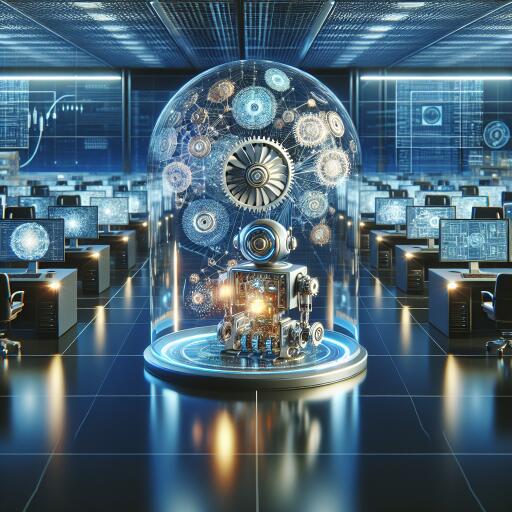Unlocking the Potential of Self-Evolving AI Systems
Imagine a world where artificial intelligence has the ability to learn and adapt on its own, without any human intervention. This is not just a futuristic dream but a reality being steadily realized through cutting-edge research. By utilizing evolutionary principles such as “survival of the fittest,” scientists have innovatively crafted programs that can spontaneously create AI algorithms which continuously improve themselves. This self-evolving AI mirrors what engineers can achieve over decades but accomplishes it in mere hours, holding the potential to revolutionize machine learning and transcend current AI limitations.
The task of devising complex algorithms, especially neural networks, has traditionally been a laborious endeavor. Neural networks, which take inspiration from the human brain, are the backbone of technologies like autonomous vehicles and voice recognition systems. Engineers dedicate substantial effort in meticulously constructing smaller circuits — for instance, those circuits essential for recognizing road signs in self-driving cars — which are then interconnected into a unified system over several months. Despite automation reducing some of these burdens, the imprint of human limitations and biases is still prominent in the architecture of AI.
In a breakthrough effort to surpass these obstacles, Google AI researcher Quoc Le, along with his team, has developed a transformative experimental system known as AutoML-Zero. This pioneering AI builds itself autonomously, free from the confines of predefined designs or constraints.
AutoML-Zero marks a significant advancement, opening up avenues for AI systems that are not only self-reliant but also endlessly adaptable. This could drastically alter how applications are developed, making them more efficient and potentially bringing forth innovations that we have yet to imagine.
As AI technologies become increasingly sophisticated, the importance of allowing them to evolve independently cannot be overstated. Such systems could greatly reduce the time and resources needed for developing new AI applications by learning from their environments and improving their own algorithms based on ongoing experiences.
Moreover, the implementation of self-evolving AI could lead to AI systems that are more robust and less susceptible to errors induced by human bias or prescriptive programming. With the freedom to explore various possibilities, these systems can potentially discover novel solutions to complex problems that human-designed models might overlook.
The implications of self-evolving AI systems extend across numerous fields, from tech industries to scientific research and beyond. In healthcare, for instance, AI that evolves independently could accelerate the development of personalized medicine, tailoring treatments to individual genetic profiles with a precision that is hard to achieve with conventional methods. In environmental science, these AI systems could optimize resources for conservation efforts or track changes in ecosystems with dynamic accuracy.
Despite the promising prospects, the journey toward fully autonomous AI systems is not without its challenges. Ethical considerations loom large as researchers grapple with the potential consequences of creating systems that operate beyond human oversight. There is an ongoing debate about the limits we should place on such AI to ensure it acts in alignment with human values and society’s best interests.
As researchers continue to experiment with and enhance self-evolving AI systems, it is crucial to maintain an open dialogue about these ethical concerns. Collaborative efforts are needed to establish guidelines and frameworks that govern the development and deployment of autonomous AI technologies.
In conclusion, the era of self-evolving AI systems is an exhilarating frontier at the intersection of innovation and ethics. As we delve deeper into this realm, the possibilities for advancement are vast and transformative. However, it is equally important to proceed with caution, ensuring that these advancements contribute positively to humanity’s future.
The strides in self-evolving AI herald not only a new chapter in technology but also a profound shift in our understanding of intelligence and creativity. By nurturing these technologies responsibly, we might just unlock capabilities that redefine what is possible.









